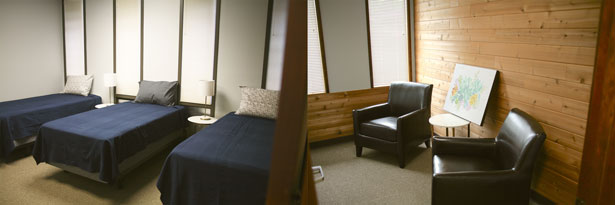Two days after the presidential election, my therapist asked me how I was feeling. A continuous loop of video footage of people shouting, “Hail Trump,” photographs of swastikas spray-painted on buildings and reports pouring in by the hundreds, and later thousands, of people being threatened because of the color of their skin repeated and shuffled in my mind, and it terrified me.
As frightening as the reports of violence and these viral news stories are, being able to navigate through my feelings of fear and anxiety with the support and encouragement of my therapist has helped me continue to put one foot in front of the other.
Mental health and self-care aren’t necessarily high atop our lists of priorities, and factoring in obstacles like stigma and money can often leave them simmering on the backburner. But ensuring that you carve out time for self-care by scheduling leisure activities like hiking or bowling or even getting enough sleep and eating a balanced diet — and taking breaks from stressors like work or school — can be just as important as meeting basic physiological needs, according to Kate Gillespie, a trained crisis counselor and the CAHOOTS coordinator at White Bird Clinic.
“If you look at Maslow’s ‘hierarchy of needs,’ people tend to need to get their basic needs met, and doing leisure activities or self-care activities generally comes farther up the line,” Gillespie says. “I come from a therapeutic recreation background and people generally tend to be more enthusiastic about kind of the mundane, monotonous parts of life if they’re having things to look forward to.”
White Bird is an umbrella agency that provides nine different types of services including helping people sign up for the Oregon Health Plan, providing mental counseling, offering a homeless case management program and a 24-hour crisis center.
And White Bird is only one of many agencies that provide low-cost counseling and crisis services throughout Lane County.
South Lane Mental Health (SLMH) is a community mental health center located in Cottage Grove that serves 2,200 people in the South Lane County area. SLMH assistant executive director Valeria Clarke says more than 15 percent of the world’s population experiences a mental health issue “at any given time.”
The center provides services in the South Lane School District, including school therapists, and many new clients are acquired after being referred by friends. “They go, ‘you know this person helped me, you should go see this person,’” Clarke says. “And so we are working to break the stigma by helping people understand from an early age that this could be really beneficial and that there’s nothing wrong with it; it’s much like going to the doctor.”
Since opening in May, Hourglass Community Crisis Center has treated more than 1,000 people in need of short-term “mental health crisis stabilization and referral” services, according to administrator Randy Anderson. Visiting the center is free, and Anderson says Hourglass has partnerships with Cahoots, a crisis intervention service that can go to a person’s office or home.
“They do sort of a brief evaluation to figure out what’s going on,” Anderson explains. “If this is a mental health crisis, bring them to us and then we sit down with a person help them get stabilized, a cup of coffee, a cup of tea, something to drink or something to eat can sometimes make a quick resolve.”
Sometimes a more in-depth conversation is needed, and Hourglass works to pair people with follow-up mental health counseling services through Willamette Family, Lane County Mental Health or a number of other low-cost care providers.
Regardless of your situation, “it’s important not to neglect your self-care,” Gillespie says. “I think it’s devalued in our society and if we can take care of ourselves and get to a point … where self care can be a priority, it’s something to strive for.”
